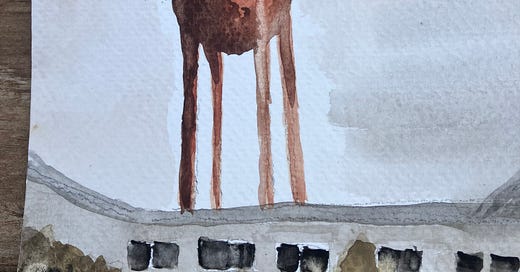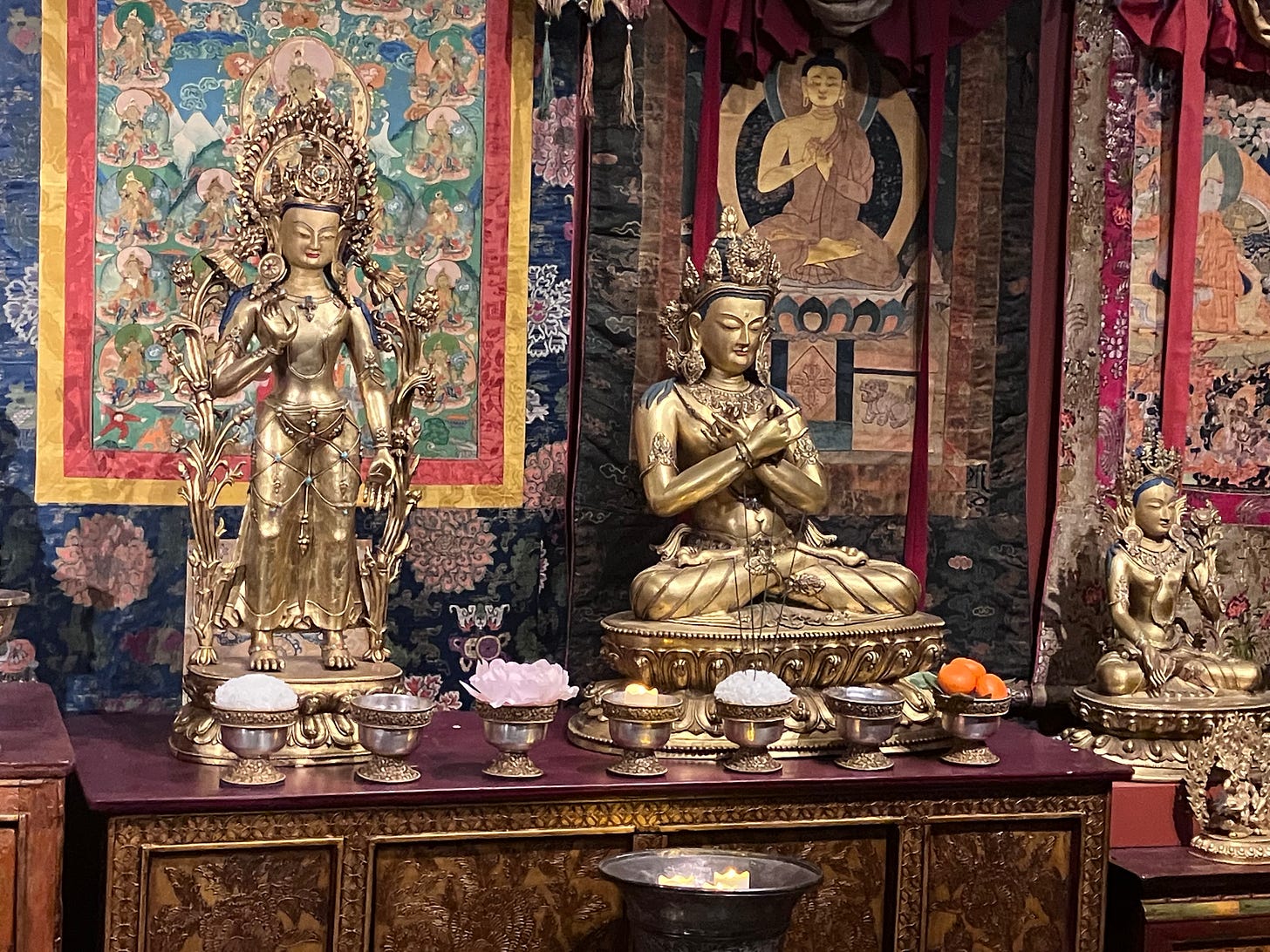“If a man does not say in his heart, in the world there is only myself and God, he will not gain peace.”
-Abba Alonius
“Our life and our death is with our neighbor. If we gain our brother, we have gained God, but if we scandalise out brother, we have sinned against Christ.”
-Abba Anthony
Hello, dear readers. This will probably end up as a two-parter; one exploring the saying of Father Alonius, the other Father Anthony’s. They seem strangely linked despite the tension between them. See you again soon.
There are not very many moments when I am alone. This is mostly by choice; the company of fellow humans is sweet sustenance, a support and a calling. It is also a fact of being human, as Brother Aristotle so famously talked about. People bring this up all the time, man being a social animal. I am tempted to bring out my copy of his writings and when I do the context doesn’t help worth beans because these are not actually his writings but notes scratched down by some fastidious student in his lecturing days (that’s the guess) but not an integrated and edited whole. The marginalia scribbled around does help a little. But its in the perusing that I remember a Living Idea.
In friendship based on excellence there is no need for justice.
He arrives at this conclusion after a long examination of all of the details of justice and friendship both, which is worth looking into (Book 8 of the Nicomachean Ethics if you’d like to explore) but I think the basic idea is pretty self-evident. We complain and find reproach in relationships which are lacking in certain areas or unequal by nature, and some measure of external justice has to come in to balance it out. The guy down the street has a Thing. You want the Thing. You take the Thing. He takes revenge. You lose either a family member or a body part. This is not working. And so exchange (and later, money) is invented.
But if your friend is lacking in something, you would not hesitate to bring it over and moreover would expect nothing in return. (Ideally.) When people are friends, they have no need of justice, but when they are just, they need friendship in addition, says Aristotle. With a friend, you get the justice naturally thrown into the deal.
It makes me think of two people whom I know intimately and for whatever reason at this point in their friendship there has been much striving. Most of the complaints are over Things, but the arguments turn out (of course) to be over more than physical objects. It’s just a Thing I say over and over, don’t hurt a person over a Thing.
Inside my own head I hear a voice that protests Things do matter! Matter matters! Meanwhile the eyeballs that face out to the world watch as two figures desperately cling to the same trivial object as if for the life of their soul. I ask for a respite from the tussle and go for a walk.
An aimless stroll in the neighborhood lands me on a bench at a local cidery squeezed between two raucous groups of friends and a band in the background also competing for my attention and feel squeezed between yet again. So much for finding peace. Sigh.
An antiquated water tower greets with a kind of look that says you know, I’ve seen it all. I start to study its face and try to honor its contours with a brush, maybe find a part of its story. The paint came from minerals I ground and mixed with honey and the sap of the acacia tree. Things render Things, comingling with attention and become something new. (Or someone new?)
The philosopher Martin Buber talks about two possible kinds of encounter we can have in the world with People and Things: I-It or I-You. In the I-It mode we seek to understand in order to control, we categorize to death, we objectify. In I-You we meet the Other with no real agenda except openness, maybe even Love. Whether interacting with the coffee cup on the table or the cashier in the checkout aisle, the Other is a Person — an approachable entity with a face and a story.
I glance again at the water tower for the 67th time or so just trying to get the railing right with a narrow brush and suddenly all else drops away and there is only myself and It. Or myself and You, actually. A You that has been standing sentry for forever, ever the same. Presence is not what is evanescent and passes but what confronts us, waiting and enduring, Buber again. I am alone, myself and You. From a faraway desert in Egypt, Father Alonius nods in recognition of our meeting and acknowledges solemnly if a man does not say in his heart, in the world there is only myself and God, he will not gain peace. A rusty tower may not be God exactly but the encounter so echoes with holiness that I strongly suspect it is a hint of that other Other, the Mystery above all.
My brother and I strolled through the Buddhist exhibit at the Minneapolis Institute of Arts recently and he told me about how hard it can be to find peace in everyday life. It’s the darnednest thing he says when I was in Thailand I remember seeing the monks meditating in the marketplace with roosters crowing right into their ears.
I quietly slip off my sandals in response to the water-tower-turned-burning-bush. Where you are standing is holy ground. I love, am loved by a surprising You. I didn’t expect to be conversing with an architectural feature but that encounter opens up my awe in ways I did not expect. I pack up and hurry home, eager to meet my loved ones again. On the way out, Buber winks with one parting comment: Man becomes an I through a You.
Yes, I whisper back.






I like the two quotes bound together. They work together like blinking and seeing, the one bringing the Sea back to other, back to focus, after too much air has dried the senses